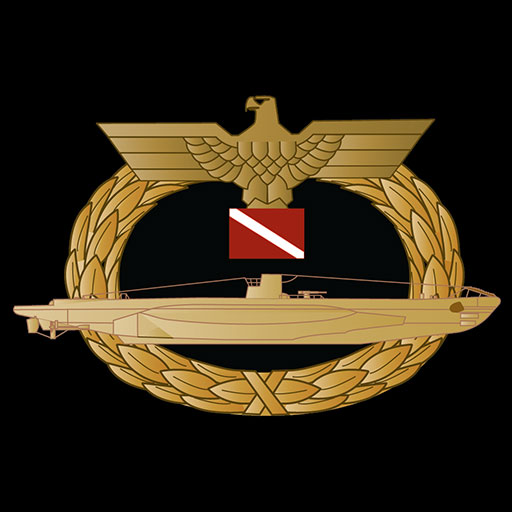The Battle of the Atlantic Research and Expedition Group (BAREG) is dedicated to the respectful and accurate appreciation and documentation of Battle of the Atlantic ship wreck sites. BAREG was conceived in July, 2011, on the F/V Audrey B, a deadrise Chesapeake Bay fishing boat temporarily configured to support wreck diving. During the transit to and from the U-1105 wreck site in the lower Potomac River, the divers discussed their mutual interest in diving U-boats and the history of the Twentieth Century’s Battles of the Atlantic. They agreed to coordinate their dive trips to wreck sites off the U.S. East Coast. In 2012, the divers trained, dove together, invited more divers, and coalesced into the Battle of the Atlantic Research & Expedition Group (BAREG).
In January 2013, BAREG was approached by staff from the National Oceanic & Atmospheric Administration’s (NOAA) Monitor National Marine Sanctuary (MNMS) with a proposal to train BAREG group members in maritime archaeology. About ten BAREG divers received Nautical Archaeology Society (NAS) training at the Sanctuary’s office located at the Mariners Museum in Newport News, Virginia. Professional archaeologists from NOAA conducted the classroom and in-water training. The NAS training introduced BAREG to avocational underwater archaeology and to the Sanctuary’s mission to survey World War II wrecks off the Outer Banks of North Carolina.
In May 2013, BAREG conducted its first formal wreck survey working with professional archaeologists from NOAA’s MNMS. BAREG divers surveyed the wreck of the 401-foot Soviet tanker, the SS Ashkabad, torpedoed and sunk off Cape Lookout on 30 April 1942 by the U-402. By October 2013, BAREG had grown and the members decided to formalize the organization with an elected board, a charter, and not-for-profit Section 501(3)(c) federal tax status.
In 2018, in response to member demands for specialized dive training to support the BAREG mission, the Group became a SCUBA Diving International/Technical Diving International training facility (SDI/TDI). Similarly, in 2021, BAREG became an International Training Partner with the Nautical Archaeological Society in the United Kingdom.
BAREG is committed to the increase and diffusion of knowledge of the Battles of the Atlantic to include documenting the wrecks of the two world wars of the Twentieth Century by:
- Conducting historical research on topics related to the maritime campaigns waged between the Allies and Axis/Central Powers during 1914-18 and 1939-45
- Conducting SCUBA dives on wrecks associated with these campaigns and documenting their current and changing conditions via photography, videography, and/or traditional archaeological recording techniques
- Presenting and publishing the results of both historical research and field work conducted by the group.
BAREG has surveyed or partially surveyed five wrecks off North Carolina and is completing a grant-funded survey of the U-1105 in the Potomac River. Data collected on the offshore surveys has been turned over to NOAA to document the conditions of the wrecks, and to prepare site maps and diver slates.
In addition to survey projects, BAREG also conducts dive trips for its members to other Battle of the Atlantic and other sites. These sites include wrecks in U.S. Mid-Atlantic and New England waters, and in the Gulf of Mexico. BAREG also conducts international trips to wrecks in Newfoundland, Canada; Scapa Flow, Orkney Islands, Scotland; off the Dorset coast of England; and wrecks off the D-Day invasion beaches in Normandy, France.
Wherever BAREG dives, our members adhere to our Statement of Ethics that prohibits removing objects from wrecks or disclosing the location of sensitive archaeological sites. BAREG divers are required to treat war grave wreck sites with dignity and respect. Details of our Statement of Ethics can be found in BAREG’s charter and on our membership application form.
Documents
